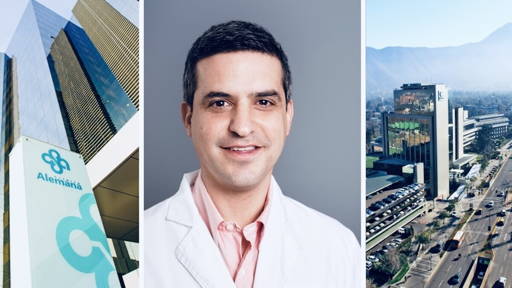In the complex setting of the intensive care unit (ICU), healthcare professionals are searching daily for ways to ensure patient safety and minimize complications. A new development from the Icahn School of Medicine at Mount Sinai shows how artificial intelligence (AI) can play a valuable role in this effort. Researchers developed the AI-powered model GLUCOSE, which supports physicians in accurately dosing insulin in patients recovering from heart surgery - a clinical challenge that comes with significant risks.
After heart surgery, many patients struggle with fluctuations in blood sugar levels. Both hyperglycemia and hypoglycemia can lead to serious complications and delayed recovery. Stable glucose regulation is therefore crucial, but difficult to achieve because of the varying needs of individual patients and the unpredictability of ICU care. Existing protocols are often generic and inadequately tailored to the unique clinical context of the patient.
Smart ICU support
GLUCOSE changes that. The model is based on reinforcement learning - a form of machine learning in which the algorithm learns through experience. By analyzing large amounts of data from real ICU cases, GLUCOSE learned how to make personalized recommendations for insulin dosing, tailored to actual patient data. Remarkably, the model performed as well, or even better, than experienced intensivists in doing so, even though it had only real-time data and no access to the full medical history.
“Our findings show that AI can be a valuable addition to clinical practice, if applied responsibly and thoughtfully,” said Dr. Ankit Sakhuja, associate professor and co-initiator of the project. “Especially in dynamic, busy environments like the ICU, a data-driven decision support tool like GLUCOSE can contribute to better and safer care.” The research was recently published in Nature.
Next step: integration into EHR
The model was trained using conservative and distributive learning strategies to ensure that recommendations are always within safe limits. Although GLUCOSE is currently still in a research phase, the prospects for clinical integration are positive. The next step is implementation in electronic health records (EHR) so that physicians are supported in real time when dosing insulin. In parallel, further clinical studies are being prepared to test the effectiveness of the system in practice.
One caveat is that GLUCOSE does not currently take into account dietary intake, which may affect blood sugar regulation in the longer term. Nevertheless, the system is already showing that, with limited but relevant data, it can make accurate and useful recommendations. It thus contributes to a safer postoperative recovery and reduces the risk of complications.
According to Dr. Girish N. Nadkarni, Chief AI Officer of the Mount Sinai Health System, GLUCOSE symbolizes a new generation of AI solutions in healthcare. "By making real-time recommendations based on real patient data, models like GLUCOSE provide a concrete example of how AI can be responsibly embedded in clinical workflow. They enhance the capabilities of healthcare providers and contribute to better treatment outcomes."
The development of GLUCOSE underscores the potential of AI as a secure, reliable and scalable partner in healthcare - with the ultimate goal of optimal support for the healthcare professional and maximum patient benefit.
AI diagnostics in diabetes
Several months ago, Stanford Medicine researchers developed an AI algorithm that analyzes data from continuous glucose meters to identify three of the four most common subtypes of type 2 diabetes. This is an important step, as type 2 diabetes is often treated as one condition, while there may be several underlying causes, such as insulin resistance or beta cell deficiency.
The algorithm, published in Nature Biomedical Engineering, offers patients insight into their specific subtype, allowing them to take more targeted preventive measures, such as dietary or exercise modifications. This research highlights the potential of AI in personalizing diabetes care.









